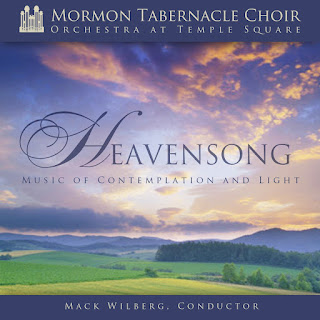There's a difference between reading and studying the scriptures, and we're advised to do the latter. There are several resources available to help us search and understand the scriptures. Some of these are seminary and Institute manuals, the Church magazines, general conference talks, other LDS books, and even the dictionary.
Yet, there is a second step we're supposed to take after studying the scriptures, and that is to ponder. This means to think about what we've read in order to make connections, discover personal application, and receive revelation. Here are three things you can do to take the time to ponder after reading.
1. Listen to Heavenly Music
 |
| my favorite album |
Maintain the Spirit you've invited through scripture study by listening to uplifting music, such as that from the Mormon Tabernacle Choir. It will aid in keeping away distractions, both externally and internally, so you can focus on the words you've read and what they mean. If you enjoy doing so, sing, hum, or play an instrument instead to create your own music.
2. Color or Craft
If you're like me and need to keep your hands busy, try an adult coloring book. I found one with Bible verses and floral designs that appeal to me. The simple activity helps me avoid reaching for my phone or any other distraction that can drive away the Spirit, make me forget what I'm pondering, or make me want to move on to something else. It also helps me stay calm and relaxed so I'm more receptive to spiritual promptings.
If you don't like to color, other options include:
- knitting or crocheting
- needlepoint
- drawing or painting
- writing or blogging (about your study)
- whittling or carving
- sculpting
- flower arranging
- origami
3. Move Your Body
 |
| photo by Michael Lorenzo |
Going out for a leisurely walk, run, hike, or bike ride allows you to see God's glorious work all around you as you exercise your body, mind, and spirit. The fresh air and sunshine can elevate your mood and keep the Spirit close by. Meditative yoga or graceful dancing also can invite peace and revelation after scripture study. Combining an enjoyable physical activity with a mental and spiritual one connects and opens up your whole soul.
For a more enriching experience, do all of these tips. For example, you could study and then go for a walk while listening to inspiring tunes. Try different combinations to find out what allows for the best pondering. Be sure to write down what you learn so you can remember and reference it in the future.
Sharing Time: What do you do to help you take time to ponder the scriptures?

Comments